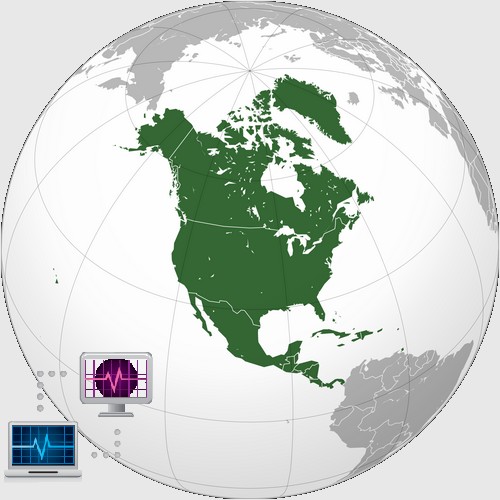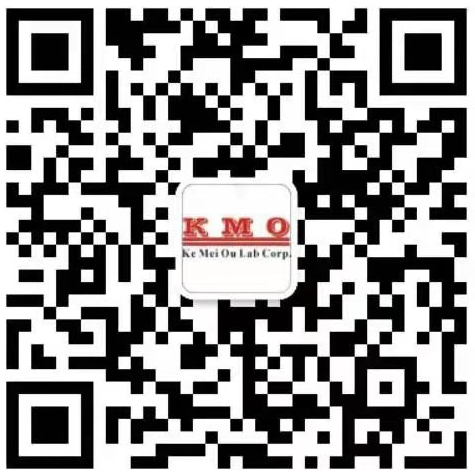
Electromagnetic compatibility (EMC) testing is a mandatory requirement for any global integrated electrical and electronic equipment. All electrical equipment must be interference-free and able to operate normally in the presence of electromagnetic interference. EMC applies to all electrical equipment or appliances in any industry or product line to which your product belongs. In order to ensure that electromagnetic radiation levels remain within a certain range, the regulatory agencies of each country/region have set their own EMC requirements, which must be met before they can be approved for release to various markets. KMO has a wealth of experience and the most advanced testing equipment to provide services for global market access.
KMO provides comprehensive EMC testing services according to the EMC compatibility requirements of countries around the world. The EMC test report issued by KMO has been recognized by official agencies, regulatory agencies and governments around the world. Our KMO provides full-wave and half-wave anechoic chambers, the size of which ranges from 3 meters to 10 meters. Our KMO queue appointment time is only 3 days at the fastest. And our KMO provides instant online order value-added services. By bundling EMC with other testing and certification requirements (telecom access, mobile access, radio frequency, security, environment, energy efficiency, performance, etc.), time and money can be saved. With KMO, you will eliminate the hassle of using multiple laboratories, Logistics delays and transportation costs.
Our KMO EMC electromagnetic compatibility testing & certification services include:
EMC of in-vehicle electronic equipment
EMC for electrical appliances and consumer electronics
EMC of lighting products
EMC for medical equipment
EMC for military and aerospace equipment
EMC for Telecommunications Equipment (IT)
etc.
United States
The Federal Communications Commission (FCC) is responsible for regular interstate and international communications, such as televisions, wires, satellites, and cables. It involves more than 50 states in the United States, Colombia and the United States attributable areas.
The main laws and regulations related to the market access of communication equipment are as follows:
Chapter 47 of the United States Code (USC)-on telegraph, telephone and radio communications;
(COMMUNICATIONS ACT);
(TELECOMMUNICATIONS ACT);
Telecommunications Law" (TELECOMMUNICATIONS ACT); Chapter 47 of the Code of Federal Regulations (CFR)-About Telecommunications.
(1) "United States Code": The "United States Code" is a permanent collection of American laws formulated and published by the Law Revision Committee of the House of Representatives. It is compiled according to themes, and a total of 50 articles are compiled and published every six years. Among them, the 47th is about the laws and regulations of telegraph, telephone and radio communication, which can be said to be the permanent legal basis of the American communication laws and regulations. For related content, please refer to Chapter 47 of the United States Code.
(2) The Communications Act and the Telecommunications Act: The promulgation of the United States Communications Act in 1934 and the establishment of the Federal Communications Commission marked the beginning of independent control of the communications industry in the United States. The "Communications Law" stipulates the FCC's organizational structure, scope of responsibilities, and regulatory requirements to supervise and at the same time promote competition in telecommunications services. At the same time, it stipulates the basic rules of telecommunications operations and radio communications, as well as penalties for violations of communications regulations.
The 1996 U.S. Telecommunications Act is an amendment, supplement and improvement to the Telecommunications Act. Further opening up telecommunications services, developing competitive markets, encouraging the interconnection of telecommunications services, liberalizing local and long-distance calls, and breaking the boundaries of technology, business, and capital. The US communications market has entered a stage of full market competition.
In fact, in the United States, these two laws have now been combined into a complete law for use, and the name is still the "U.S. Communications Act." For specific content, please refer to the "U.S. Communications Act."
(3) The Code of Federal Regulations (CFR); Chapter 47 of the Code of Federal Regulations of the United States is about telecommunications regulations (that is, 47CFR), which implements the United States Code and the United States Communications Act (including the Communications Act of 1934 and 1996). Telecommunications Law). The specific implementation content of telecommunications control. Related content can refer to 47CFR.
Our KMO laboratory has complete EMC testing capabilities of the United States FCC and FCC CAB accreditation, and can directly issue FCC SDoC reports. KMO can provide customers with testing services as follows:
FCC Part 11
FCC Part 15
FCC Part 18
etc..
【Online Order】
Canada
Innovation, Science and Economic Development Canada_ISED The Department of Trade and Commerce was created in statute on June 23, 1887 and proclaimed into force on December 3, 1892. In 1969 the Department of Trade and Commerce was replaced by the Department of Industry, Trade and Commerce. In 1990, Industry, Science and Technology replaced Industry, Trade and Commerce. This new department also absorbed the offices of the Minister of Regional Industrial Expansion and Minister of State for Science and Technology. This marked the inclusion of regional approaches and scientific emphasis in the development of Canadian industries. In 1993, the department expanded its portfolio further to include Consumer and Corporate Affairs. In March 1995, the department was renamed Industry Canada.
Upon the November 2015 installation of the 29th Canadian Ministry led by Prime Minister Justin Trudeau , the position of Minister of Industry was renamed Minister of Innovation, Science, and Economic Development . Subsequently, applied title under the Federal Identity Program was changed from Industry Canada to Innovation, Science and Economic Development Canada. The Department headquarters are located at the CD Howe Building at 235 Queen Street in Ottawa , Ontario.
ISED has three core responsibilities. These responsibilities are to oversee Canadian companies, investment and growth; people, skills and communities; and science, technology, research and commercialization. It addresses these responsibilities by doing work in four areas. These areas are research and development; economic development; market integrity, regulation, and competition; and internal services. This work is done by distributing grants and contributions, providing programs and services, managing federal activities, and overseeing relevant regulation and legislation.
Our KMO laboratory has complete EMC testing capabilities of the Canada ISED and ISED CAB accreditation, and can directly issue ISED accredited reports. KMO can provide customers with testing services as follows:
BETS-3
BETS-7
ICES-Gen
ICES-001
ICES-002
ICES-003
ICES-004
ICES-005
ICES-006
ICES-008
RSS-102
RSS-310
etc...
【Online Order】
Mexico
As of September 2013, Mexican telecommunications agency, Federal Telecommunications Commission (COFETEL), has been replaced by IFETEL (Federal Institute of Telecommunications). IFETEL is in charge of Mexico telecom type approval processes for all equipment that require local testings for import to Mexico.
IFETEL’s responsibilities include:
Defining the radiofrequency bands to be used for telecommunications and broadcasting that can be utilized by concessionaires;
Granting concessions and approve any concessions transfer;
Issuing/updating regulations for the telecom industry;
Identifying and regulating monopolies.
All products that use frequency to send and/or receive signals and all telecommunication products connected to PSTN or public networks must be IFETEL certified.
Our KMO laboratory can provide clients with agency application services. For specific details and needs, please contact our KMO!
【Online Order】
 Follow us for the latest news
Follow us for the latest news Working hours: 9:00-18:30, Monday to Friday
Contact:Lisa Liu
Mobile:18028790769
Email: kmo@kmolab.com
Address:Room 2013, 20th Floor, Business Center, Jiahui Xin Cheng, No 3027, Shen Nan Road, Fu Tian, Shen Zhen, Guang Dong, China
